Steve Cummings's 15 life lessons in staying ahead
Renowned master of the long-range solo attack, Steve Cummings set a punishing pace for over 20 years. Here, he shares his hard-earned fitness wisdom with Rebecca Charlton
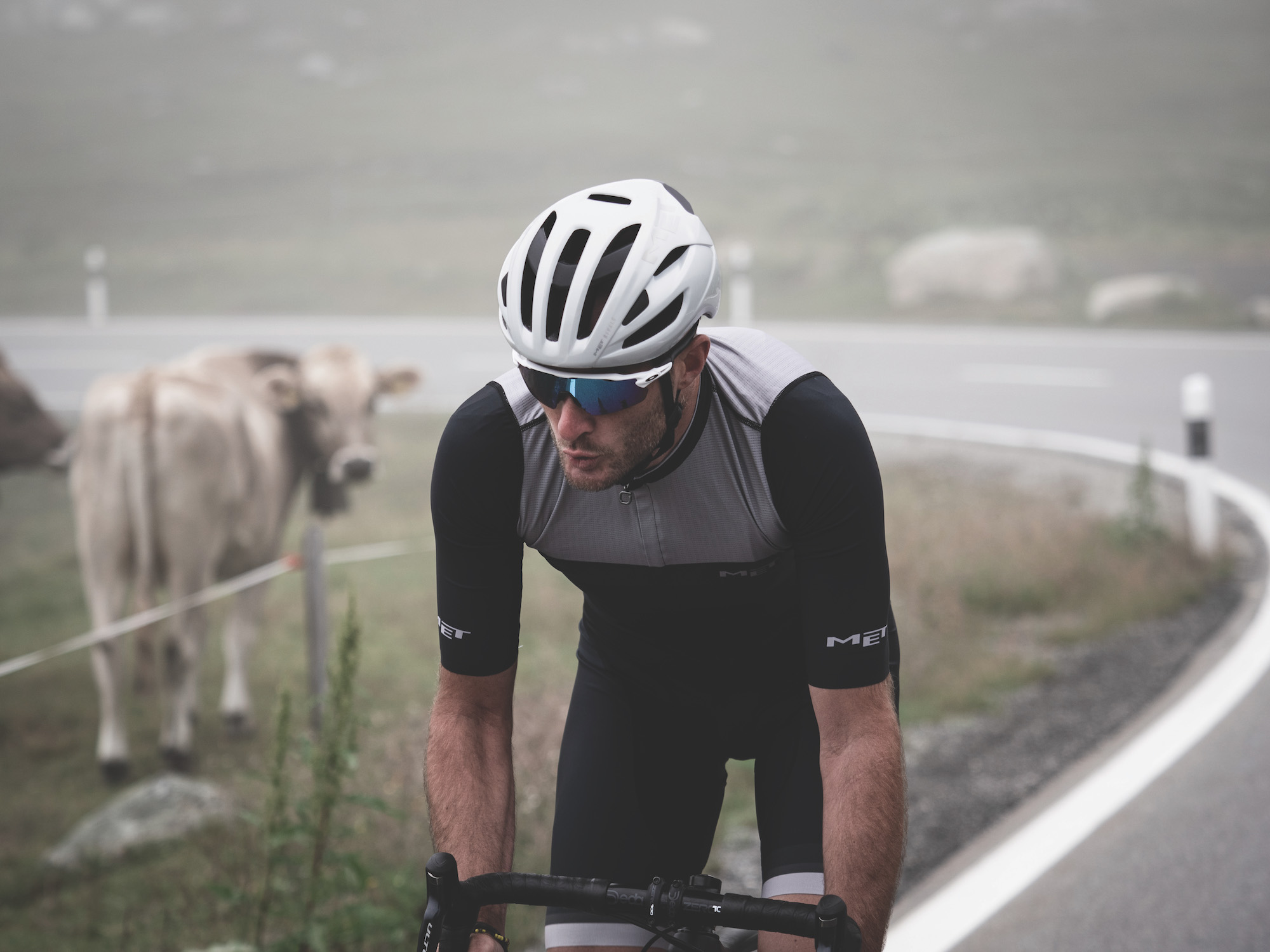
As a junior rider with Birkenhead North End Cycling Club in the Nineties, Steve Cummings was winning gold medals from an early age. By 2004, he was standing upon the second step of the Olympic podium in Athens, at a pivotal time for British Cycling – as a key part of the success story that saw Britain rise to the top of the global rankings.
After becoming world champion on the track, Cummings went on to become a three-time Grand Tour stage winner on the road, with Barloworld, Team Sky, BMC and latterly Dimension Data. He entered the history books alongside David Millar when he clinched road race and TT double victory in the 2017 national championships. Known as a gritty rider, Cummings was loved by fans for his gutsy breakaway rides and solo victories.
He retired in 2019, aged 38, after more than two decades at the sharp end. Cummings spoke to CW from his home on the Wirral – via our lockdown saviour, Zoom – to share a career’s-worth of fitness, training and racing wisdom.
Learn to love the way of life
When I first started cycling, I wasn’t thinking about racing. I had a group of great guys who used to take me out as part of the Birkenhead North End cycling club. They taught me how to enjoy the bike, the cafe stops and that side of things. After about six months, I started wanting to become a bit stronger and that’s when I got into racing.
>>> Subscriptions deals for Cycling Weekly magazine
I was fortunate that we had Keith Boardman [Chris Boardman’s father] in our club, so he became my coach and I had very good guidance there. I had a number of good mentors: I used to ride with Mark Bell, who’s the longest-standing training partner I’ve ever had. It was all about following good people, on or off the bike, not necessarily just good cyclists but people with a good work ethic - living life in a healthy way and having fun. I definitely had a streak in me that was, let’s say, ruthless. When you’re on the bike, that’s sometimes how it has to be, but off the bike it’s totally different.
Get The Leadout Newsletter
The latest race content, interviews, features, reviews and expert buying guides, direct to your inbox!
Start young but stay balanced
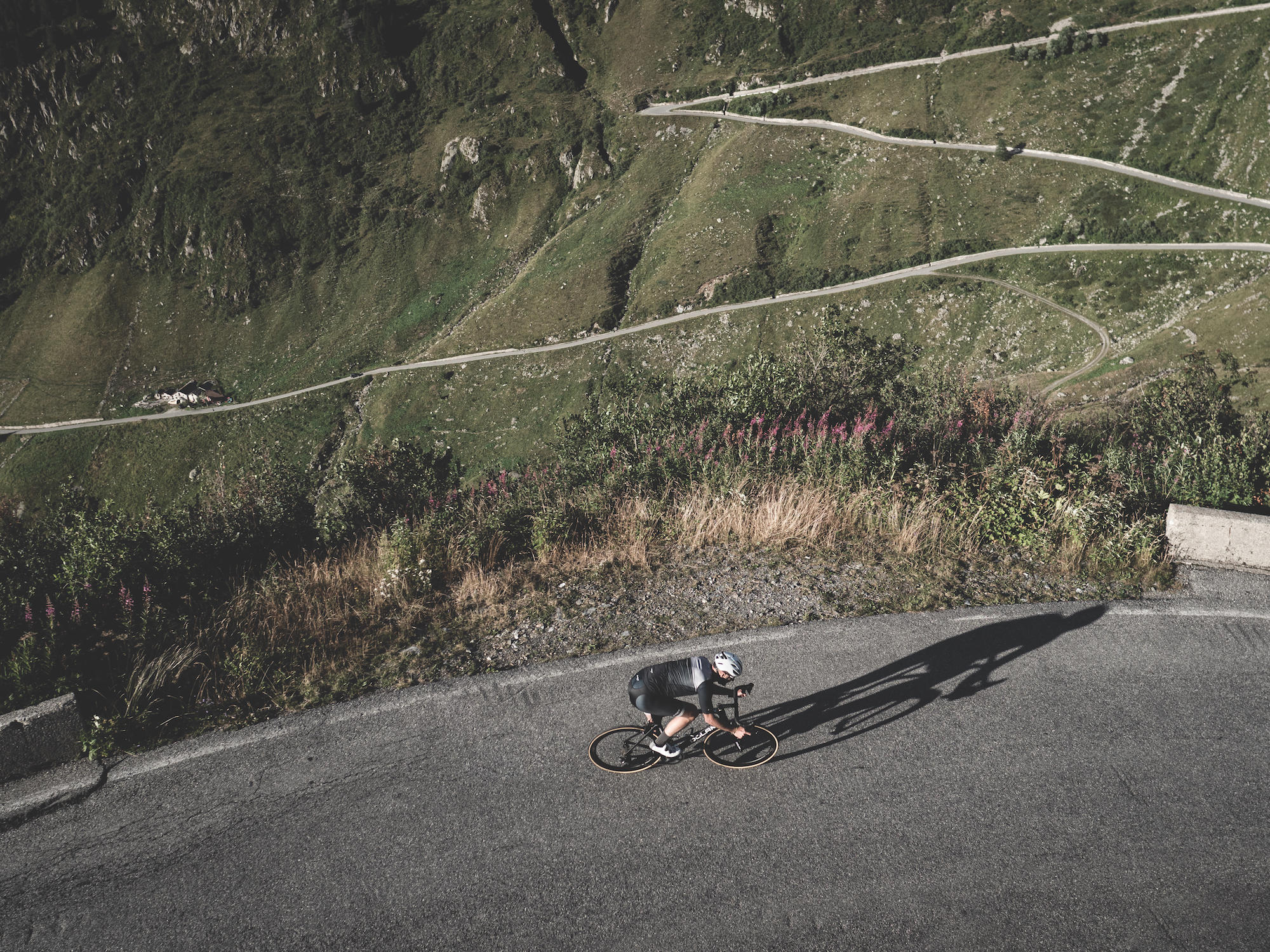
The sport has grown, it’s become more professional and teams are signing riders earlier. For example, this year’s Tour winner [Tadej Pogačar] is so young that it makes me think perhaps sports science has advanced and people understand how to train better. There’s more information and more knowledge. In a way, if you want to do it, you’ve got to be ‘on it’ at a young age. Having said that, there’s still a really important balance to be struck, and the lesson here is that you’ll crack unless you enjoy it. You have to learn when to switch it on and when to switch off - that’s a skill. What you see on social media isn’t necessarily the truth; it’s just a clip or a picture of one point in one day - you don’t always know what training other riders are putting in.
Surround yourself with inspiring people
I knew I wanted to be a road rider and had a vision of the kind of rider I wanted to be but I had no idea how to get there. The track was a vehicle to become full-time and a funded athlete. I loved the track and it gave me a lot in terms of planning, having a vision and working towards goals. I was fortunate enough to work with amazing people in British Cycling as well: legends of the sport like Sir Chris Hoy, Bradley [Wiggins], Vicky Pendleton - there are so many I could name. It was a really good time to be in that environment.
Dream big
Your dream can seem crazy but you don’t have to tell people. You don’t have to go around saying, ‘Hey, I’m going to win 15 gold medals’. You can keep them in the back of your mind but first you have to be realistic because before you can win 15 you have to win one.
If you’re doing a sportive - let’s say, the Fred Whitton, known to be one of the hardest in the country - you break that down. Choose a slightly less challenging event as a shorter-term target and then focus on the process of how you’re going to chip away. I always think about it like a car - that’s my analogy - engine and body. You polish the body and tune the engine and off you go.
Focus on the process
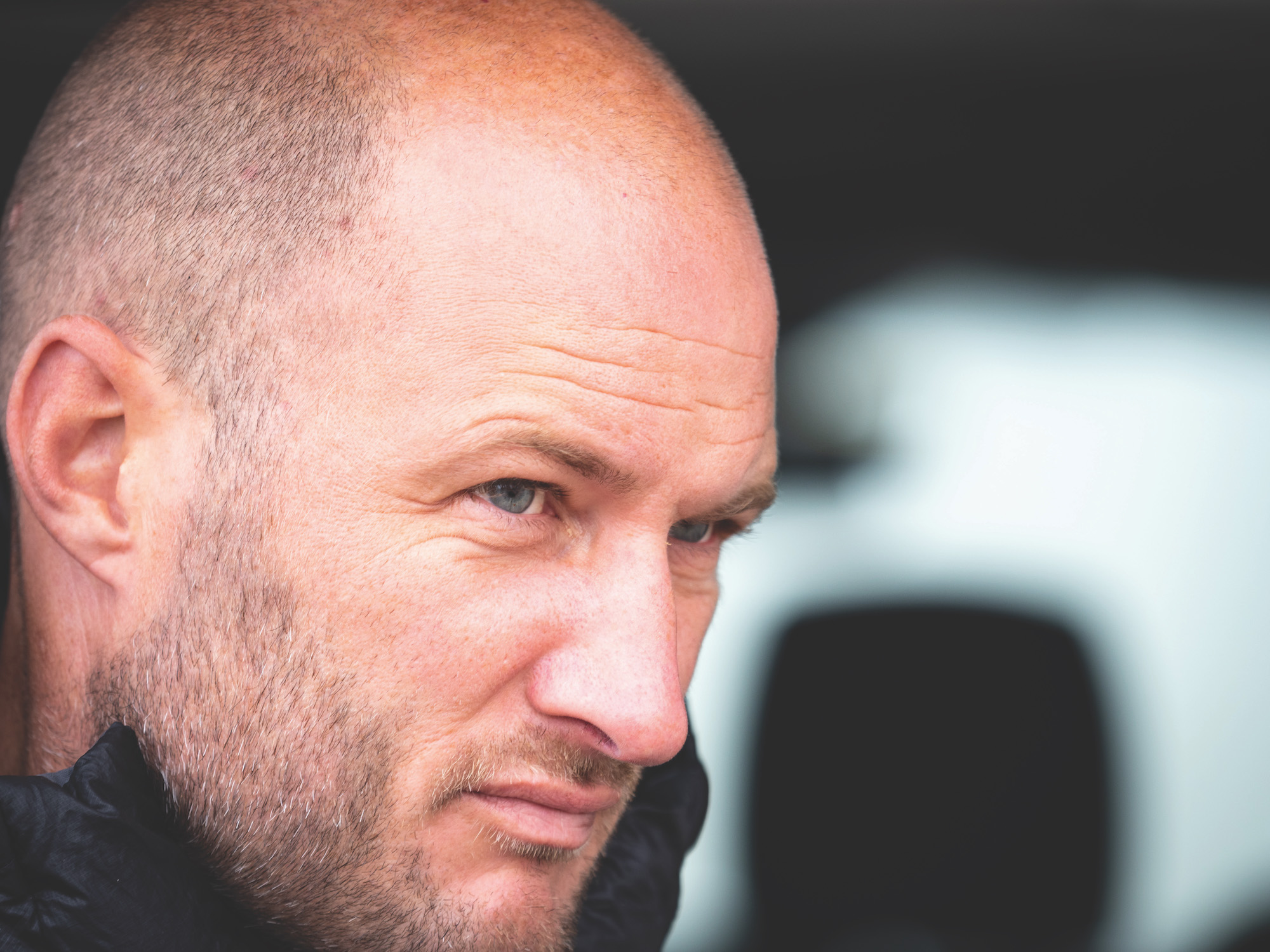
There are so many lessons you learn, including resilience, attention to detail, that process of having a goal, making a clear decision and going through with it. Ignore all the white noise and focus on your process, constantly refining and trying to do it better. It’s a continuous circle - always having one eye open to trying everything, to try to push the equipment, to push your nutrition, your training, just always pushing to find a little bit more.
Stay humble
It’s important to stay true to your values and stay humble. When you do well or win a race or turn pro, it’s quite easy to say, ‘Hey, I’m the man,’ but if you think like that for one second, unless you’re super talented, then it’s done. You have to keep going forward - I love the Sunweb hashtag ‘Keep challenging’. For sure enjoy it, but don’t think ‘I’m the master now’. The moment you think that, that’s a disaster.
Power counts for nothing with passion
When I started training, I was using a heart rate monitor already, so from the age of about 14 I knew my heart rate zones. When power meters came, I was an under-23, and at first I wasn’t really interested at all; it was just a thing for the coach. I didn’t even know how to download the data really! Later I went completely to the opposite and was obsessed with numbers. Ultimately I came back the other way - I recognised the importance of numbers but it wasn’t the be all and end all.
You can talk about numbers all day long but in the moment you have to forget about them and it’s all about the passion, the grinta [grit]. That was the balance - structuring training in terms of numbers but with a window in every session to feel and express myself.
Do your best every day
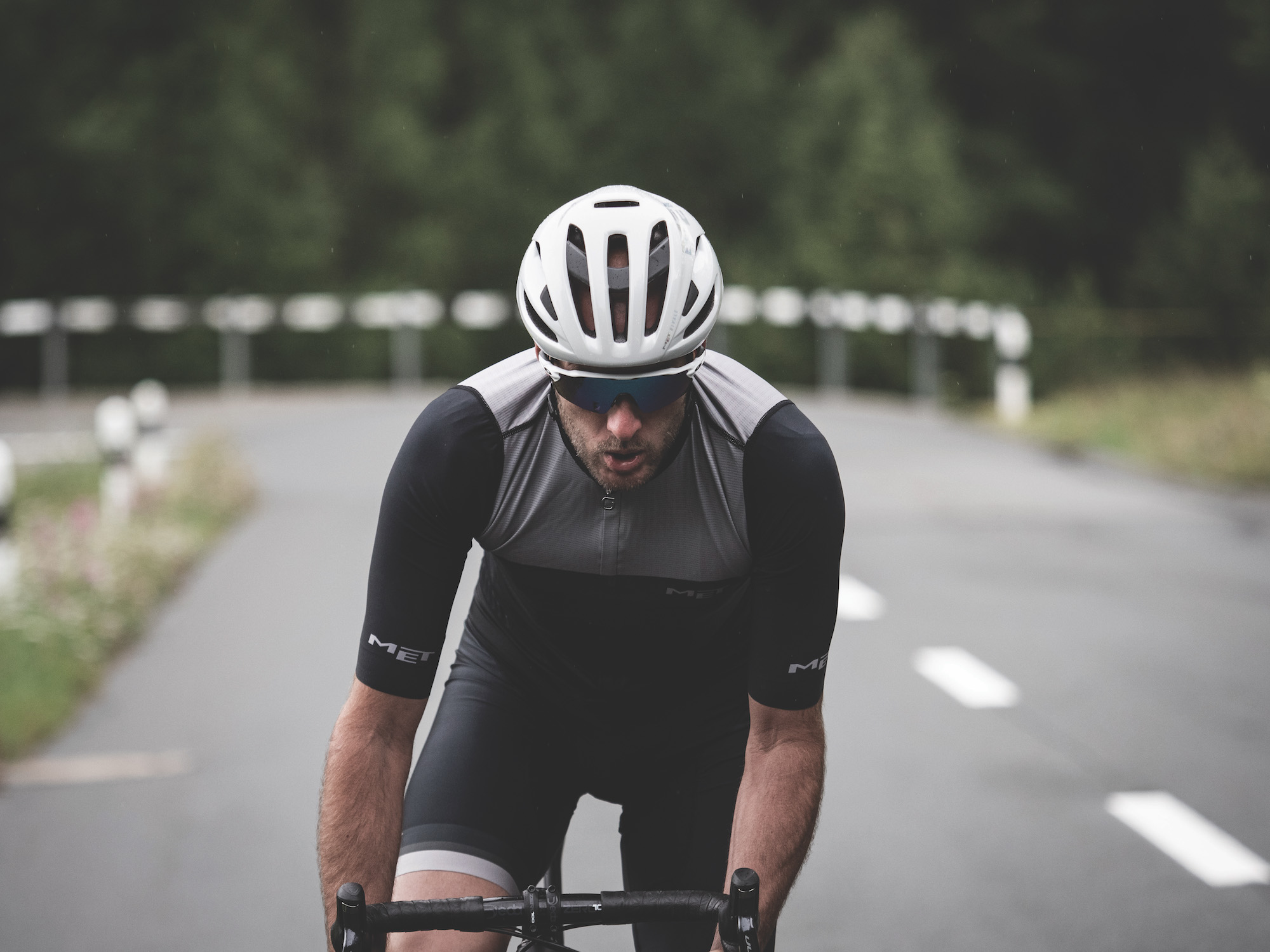
When I won my first Tour de France stage in 2015, in terms of my form, I was probably as good as I’ve ever been within a small percentage physically, and mentally I was also very strong. It was a combination of a lot of hard work in terms of physical approach but also being cool enough or smart enough in the race to deliver.
I wanted to be able to look at myself in the mirror and say, ‘Every time I’ve put my leg over the bike, I’ve done my best.’ That doesn’t mean you ride until you’re empty every day; you do your best but in a smart way. In the end, you can review and say ‘This could be better, that could be better’. Just make sure, whatever happens, you commit. It was probably only after I won that stage that I could think about winning a bit more - but strangely I didn’t think very much about winning; I thought about doing my best.
Build belief from your successes
The Tour de France is the biggest annual sporting event, so if you can win there, it can make your career - and it certainly did for me. For a few years, every morning when I woke up, I’d go to the mirror - it sounds crazy - and say, ‘You are strong’. I just used to do things like that until I believed I was. Victories like that and performances like that, you start to watch them back on TV, and it changed the way I looked at races. It gave me confidence to try more daring things.
Getting to race weight requires willpower
My body didn’t really want to be lean, so I had to pay big attention to my nutrition. Timings were key - not just what I ate but also when. I used to be consistent. I wouldn’t balloon up in the winter; I’d gain maybe a few kilos, then it wouldn’t be a big effort to get it off. The last kilo or so would be quite tricky, as you’re taking your body to a place it doesn’t really want to go - and that means you’re hungry, grumpy, hangry... but it’s a sacrifice you have to make. Willpower is key.
Do the basics better than everyone else
Keep referring back to your plan - where you are in your goals and where you need to get to. I had a golden rule: to do the basics better than the others. Train, rest, sleep and eat better consistently. I’d prioritise those elements and not get drawn too much into anything else, otherwise your life gets cluttered. You can end up going left, right and centre chasing marginal gains but if you’re not careful it can come at the detriment of getting the basics right. I love that Rocky Balboa style - just get out there and do your thing. I never went to fancy gyms; I never wanted to make it too nice because I never wanted to get too comfortable. You’ve got to keep it real.
Never shy away from innovation
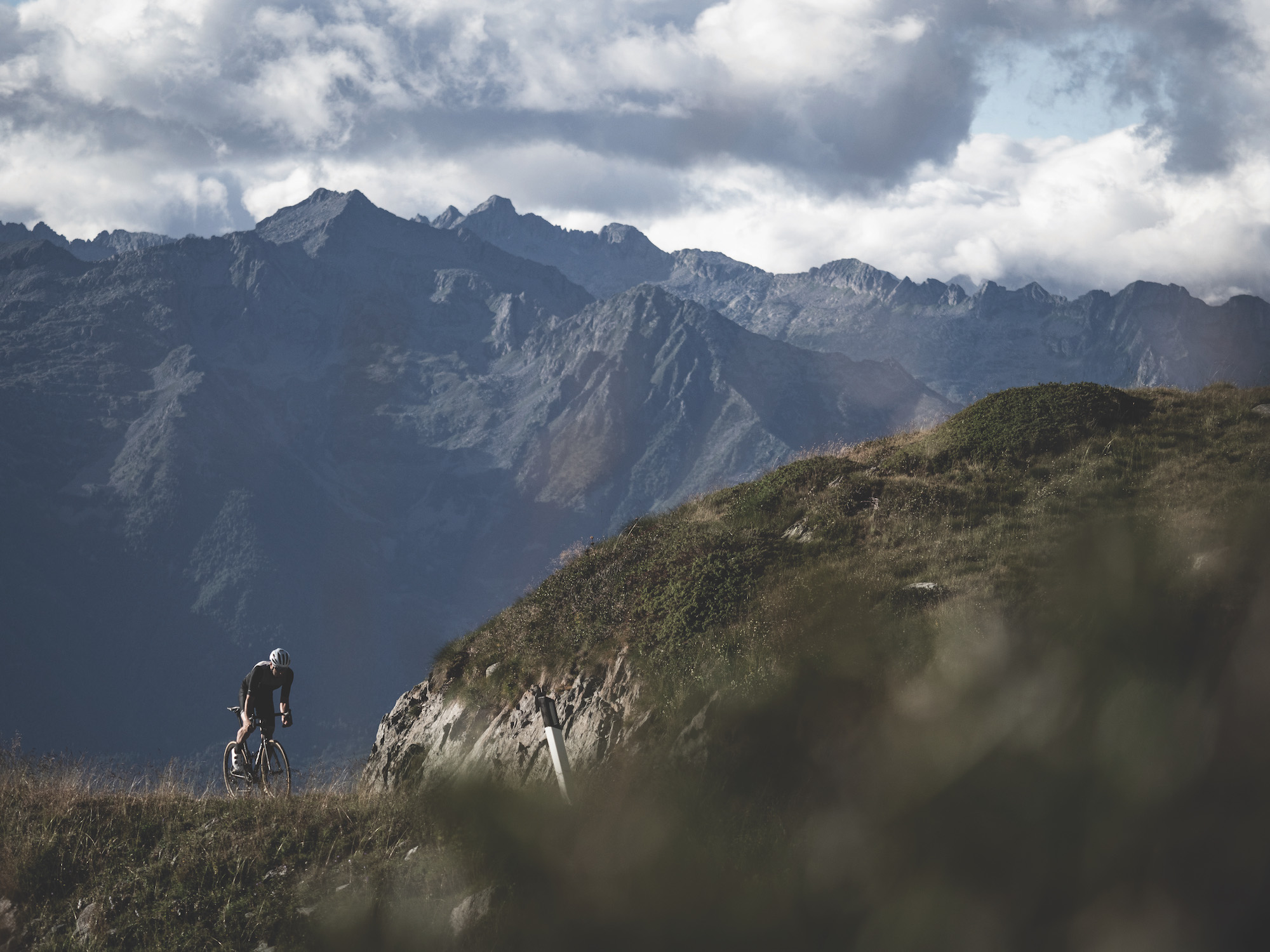
I always took my own pillow with me to races because for me that was doing the basics right. In terms of marginal gains, I think it was tricky because we were coming from British Cycling, from the guy [Dave Brailsford] who invented marginal gains - he was doing it way before any of the other teams.
There were things that other teams did very well but in terms of the overall package, I would say that what we had with Dave Brailsford and British Cycling in that period was better than anything else I’ve ever experienced. It’s important to keep talking to people, to keep your finger on the pulse and you might find something new.
Let them eat cake!
For sure eat the cake, but choose your timing. Have it when you’ve been on the bike and you can use it. Do not eat half a chocolate cake at night before you go to bed. There comes a point, if you want to be as lean as you can be, where cake’s not useful. We’re talking about fine margins in 260km races or three weeks of a Grand Tour where it makes a huge difference. If you’re just riding at the weekends, eat the cake - it won’t make a difference.
>>> Cycling Weekly is available on your Smart phone, tablet and desktop
I was all about moderation, so I would have [an alcoholic] drink when I felt like having a drink but I’d very rarely drink more than one. Generally during the Tour, I wouldn’t ever drink. You’re so focused from a few months out [from the Grand Depart] that your habits and your lifestyle change to the point where if something’s not ideal to eat, you just don’t eat it.
Turn yourself inside-out
I’ve probably averaged 10 hours a week since I retired, maybe a bit more. I’d love to do some martial arts too. During my career I focused on quality, not quantity. I averaged around 20-25 hours a week but it was always high quality. I don’t really believe in overtraining but I do believe in under-resting sometimes because if you’re thinking about the Tour de France, you have to train yourself inside-out. Your training should replicate what you’re going to have to do in a race. It doesn’t mean you do it day in, day out but at times you do have to turn yourself inside-out but you also have to rest, recover and adapt.
Want to get away? Concentration is all
On solo attack, I had complete concentration. I was ruthless. I just wanted to get the better of whoever was around me, so I’d try to work the scenario of the situation to get the best out of myself and exploit the others’ weaknesses. Concentration, concentration, concentration. It’s quite hard to describe but I was just completely in the zone.
This feature originally appeared in the print edition of Cycling Weekly, on sale in newsagents and supermarkets, priced £3.25.

Thank you for reading 20 articles this month* Join now for unlimited access
Enjoy your first month for just £1 / $1 / €1
*Read 5 free articles per month without a subscription

Join now for unlimited access
Try first month for just £1 / $1 / €1
-
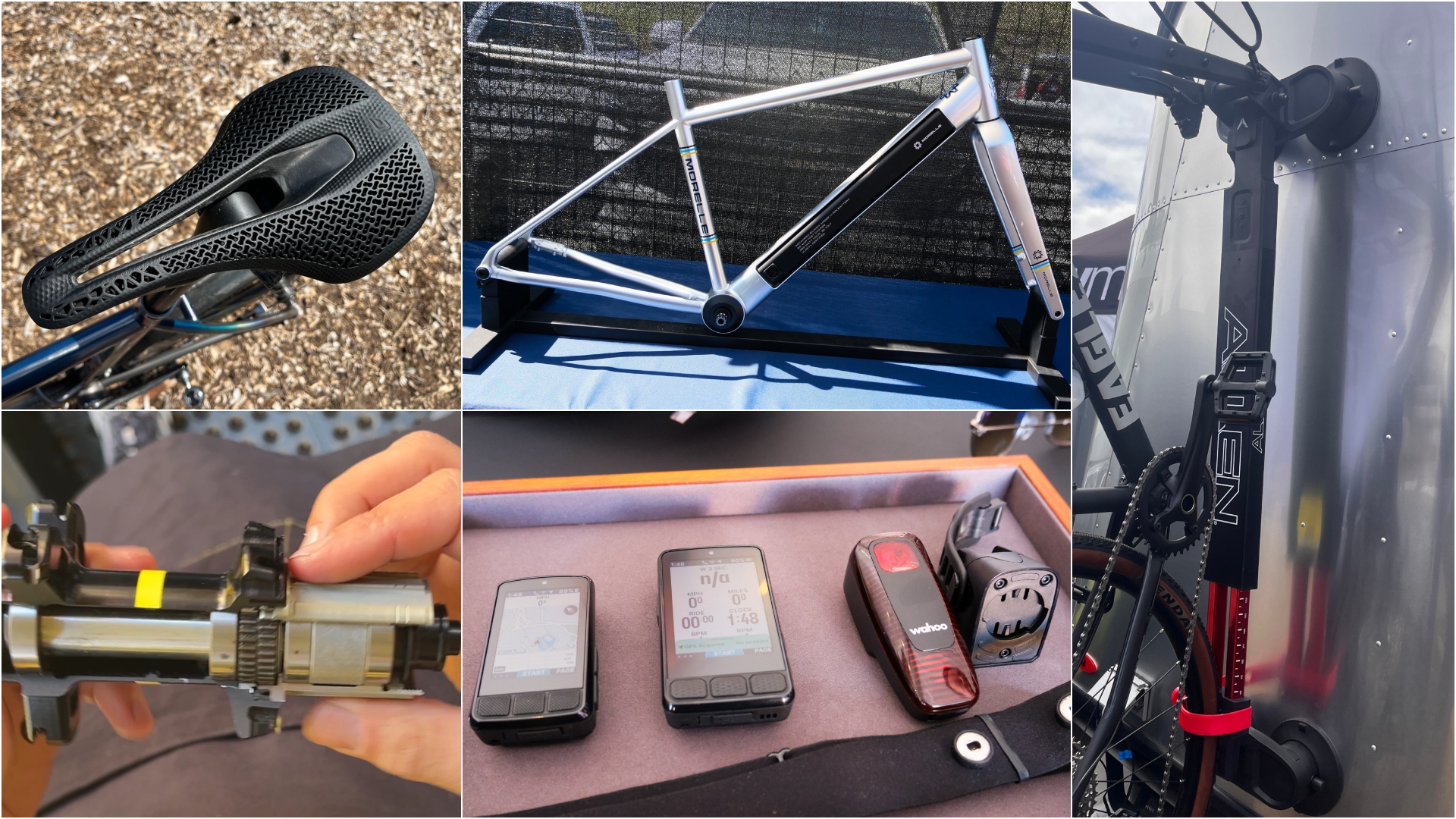 A bike rack with an app? Wahoo’s latest, and a hub silencer – Sea Otter Classic tech highlights, Part 2
A bike rack with an app? Wahoo’s latest, and a hub silencer – Sea Otter Classic tech highlights, Part 2A few standout pieces of gear from North America's biggest bike gathering
By Anne-Marije Rook
-
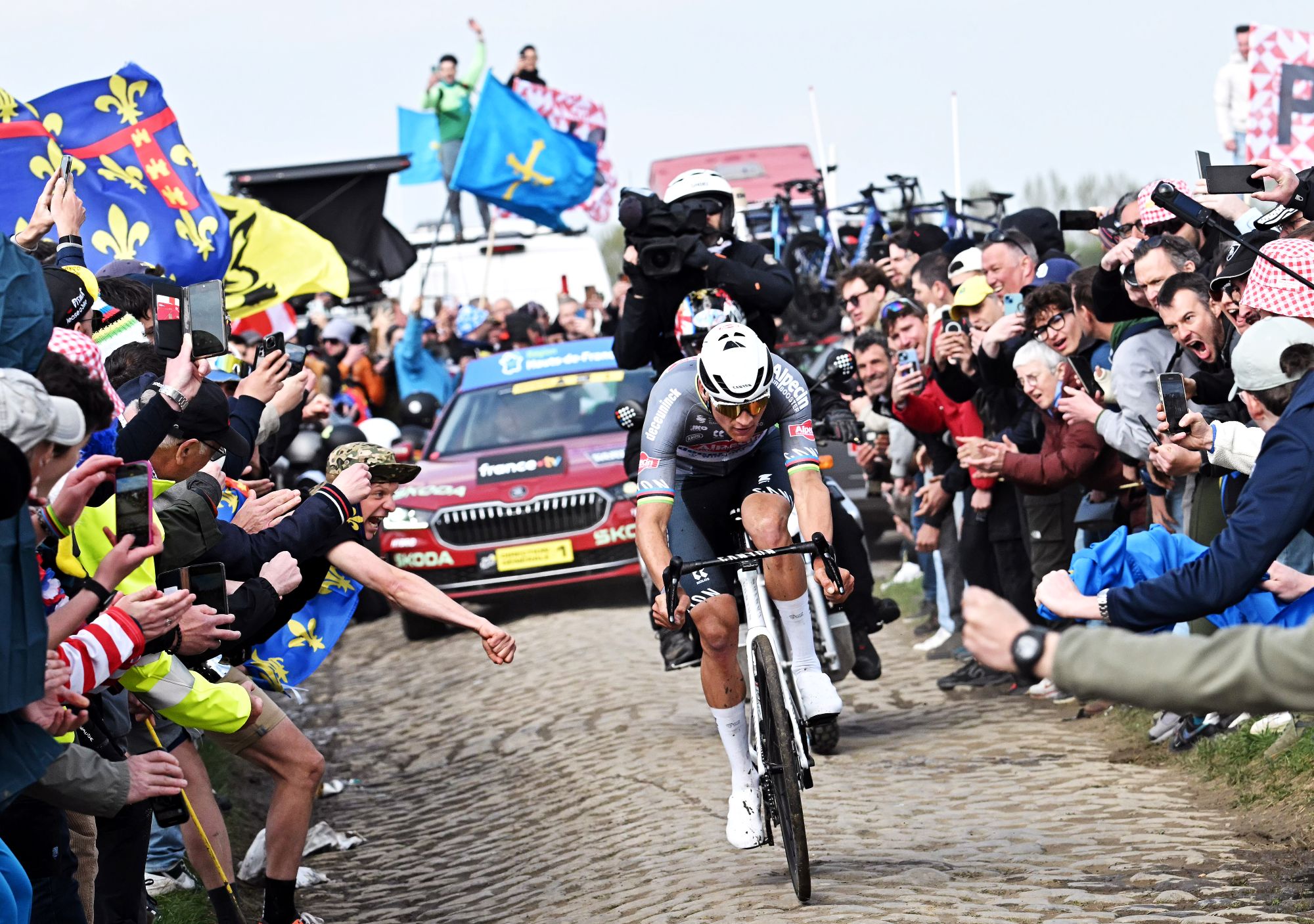 Cycling's riders need more protection from mindless 'fans' at races to avoid another Mathieu van der Poel Paris-Roubaix bottle incident
Cycling's riders need more protection from mindless 'fans' at races to avoid another Mathieu van der Poel Paris-Roubaix bottle incidentCycling's authorities must do everything within their power to prevent spectators from assaulting riders
By Tom Thewlis